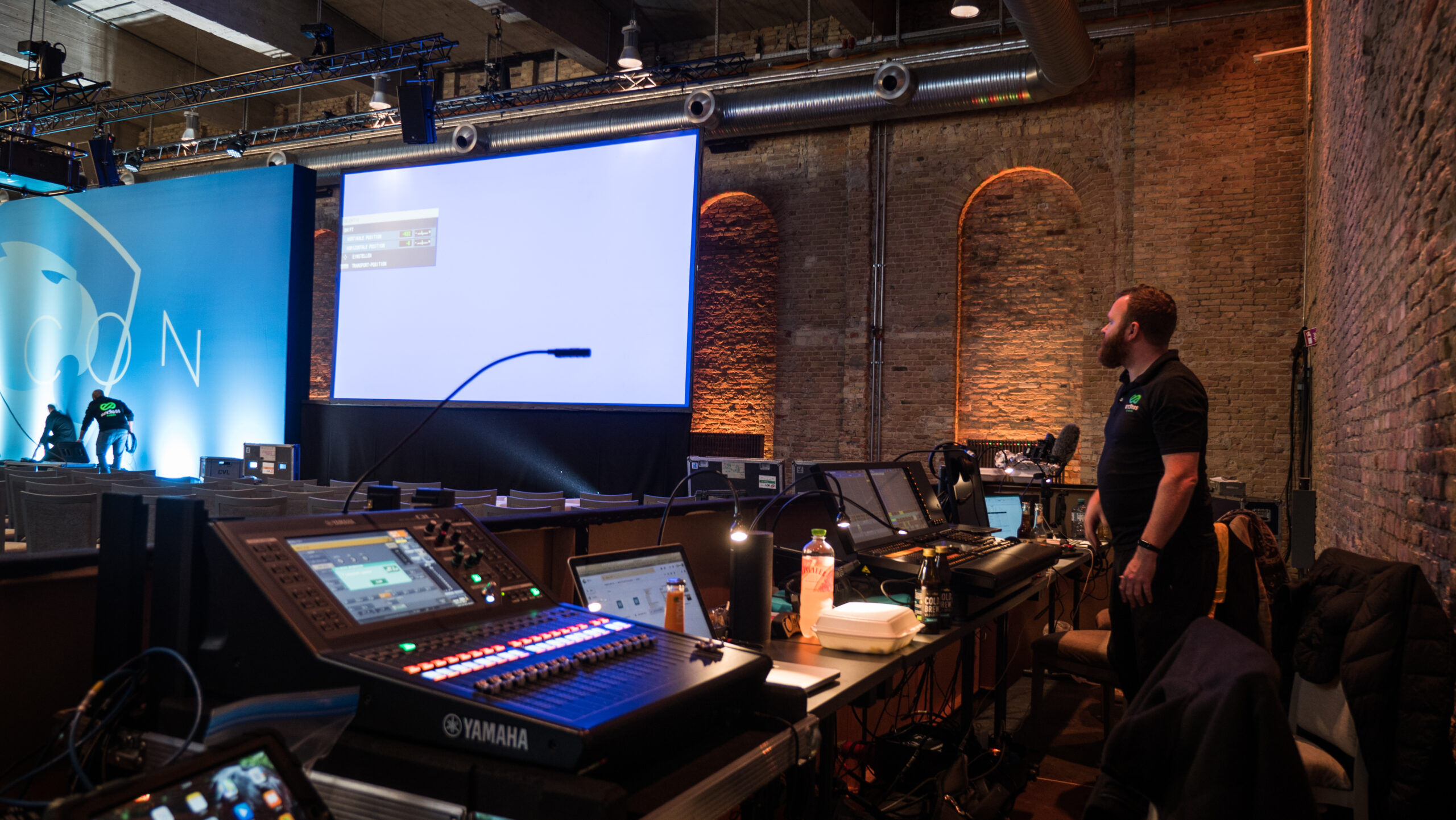Make Best Use Of Interaction with Interactive Elements in Event Productions
Make Best Use Of Interaction with Interactive Elements in Event Productions
Blog Article
Comprehending Just How Events Production Works: A Comprehensive Overview of the Process
The details of event production demand a systematic approach that incorporates several stages, each playing a vital role in the total success of an occasion. From the initial preparation and concept advancement to the careful sychronisation of logistics, every aspect should straighten effortlessly to achieve the desired result. Recognizing the nuances of budgeting, source allotment, and on-site management is vital for any specialist in this field. As we discover these parts better, it becomes apparent that the process is not merely regarding execution but likewise about continuous improvement and strategic evaluation. What understandings can we glean from each phase?
Preliminary Planning and Idea Advancement
Efficient first planning and concept growth function as the foundation for successful occasions production. This stage entails specifying the event's purpose, target audience, and desired outcomes. A clear vision is essential; it guides all succeeding decisions and assists line up the group's initiatives toward an usual goal.
During this stage, conceptualizing sessions can be very useful. Involving stakeholders, consisting of customers, enrollers, and prospective guests, fosters a collective environment that generates innovative ideas. Furthermore, detailed marketing research ought to be performed to recognize fads, choices, and prospective obstacles.
As soon as the principle is established, it is important to develop a thorough event outline. This summary needs to consist of the occasion's motif, format, and essential tasks. Establishing a timeline is equally essential, as it aids to handle target dates and tasks properly.
Budgeting and Resource Allotment
With a strong idea in position, interest should turn to budgeting and source appropriation, which are vital components in carrying out the event successfully. A distinct budget plan serves as a roadmap, detailing all anticipated prices and readily available sources. It starts with identifying repaired and variable costs, consisting of venue leasing, catering, innovation, staffing, and advertising and marketing. Each category must be thoroughly calculated to stay clear of overspending and to make sure that funds are alloted properly.
Source allowance entails designating both economic and human sources to numerous jobs and components of the event. Prioritization is key; crucial components must obtain adequate financing while much less critical aspects might require a more conservative strategy. Contingency preparation is crucial-- assigning a part of the budget plan for unanticipated expenses can minimize monetary risks.
Furthermore, reliable interaction among group participants pertaining to spending plan restraints fosters collaboration and development. This advertises the liable use resources and encourages innovative services to remain within spending plan. Ultimately, a tactical approach to budgeting and source allotment lays the foundation for a successful event, enabling organizers to concentrate on supplying an unforgettable experience for participants while maintaining economic integrity.
Logistics and Control
Navigating the intricacies of logistics and control is important for the seamless implementation of any kind of occasion. This phase includes careful preparation and organization to make certain that all components function in consistency. Crucial element include location choice, transportation arrangements, and the organizing of different tasks.
Effective logistics begins with a complete evaluation of the venue's abilities and restrictions. This consists of understanding the design, access factors, and readily available resources. When the place is validated, transport logistics need to be established, incorporating the movement of attendees, tools, and products. Working with these aspects needs collaboration with vendors, suppliers, and transportation services to ensure timely deliveries and pickups.
An additional important facet is the growth of a comprehensive timeline that outlines all logistical elements leading up to the occasion. This timeline offers as a roadmap, detailing vital turning points and deadlines for jobs such as equipment arrangement, providing solutions, and audiovisual installations. Regular communication with all stakeholders is essential to attend to any potential problems proactively.
Execution and On-Site Administration
Successful execution and on-site monitoring are crucial for transforming precise strategies into reality during an occasion. This stage entails the seamless coordination of various components, guaranteeing that every information aligns with the recognized vision. On-site supervisors play a crucial role, functioning as the central point of communication among vendors, personnel, and stakeholders. Their ability to make real-time choices can dramatically impact the event's success.
A distinct routine is important, offering as a roadmap for all tasks. Occasion supervisors have to make certain that setup happens in a timely manner, sticking to timelines for audio checks, providing distributions, and guest arrivals. Efficient problem-solving skills are additionally vital; unexpected obstacles can arise, requiring quick reasoning and versatility to keep the event's flow.
Additionally, focus to guest experience is paramount. Keeping an eye on guest interactions, ensuring security procedures are adhered to, and giving support team to deal with worries cultivates a favorable ambience. This degree of involvement not only enhances the total experience but additionally shows the professionalism and trust of the occasion group. Event Productions. Ultimately, successful execution and on-site management depend upon comprehensive preparation, reliable interaction, next page and a dedication to supplying a remarkable event for all entailed.

Post-Event Evaluation and Comments
The end result of any type of occasion lies not only in its execution however also in the comprehensive evaluation that complies with. Post-event analysis is necessary for determining the total success of the event and recognizing areas for renovation. This procedure usually entails gathering responses from various stakeholders, consisting of participants, vendors, and group members, to get a detailed viewpoint on their experiences.
To structure the analysis, event coordinators commonly use meetings and surveys, concentrating on key efficiency signs such as guest satisfaction, logistical effectiveness, and budget adherence. Assessing this information enables organizers to analyze whether the occasion fulfilled its purposes and to recognize the strengths and weak points of the implementation.
Furthermore, assembling a detailed record summarizing the searchings for is important for future referral. This paperwork not just works as an important source for preparing succeeding occasions however also promotes a culture of constant renovation within the company. By methodically resolving feedback and implementing changes, event experts can boost their methods, inevitably resulting in even more impactful and successful occasions. To conclude, post-event examination is an essential step in the occasion manufacturing procedure that makes sure continuous development and quality in future endeavors.
Final Thought

The ins and outs of occasion manufacturing demand a methodical strategy explanation that integrates multiple stages, each playing a critical duty in the general success of an event.With a solid principle in location, focus has to transform to budgeting and resource allowance, which are important parts in executing the occasion efficiently.Source allocation involves appointing both human and economic sources to numerous jobs and components of the event. Inevitably, a calculated approach to budgeting and resource allotment lays the groundwork for a successful event, making it possible for coordinators to focus on providing an unforgettable experience for guests while keeping monetary integrity.

Report this page